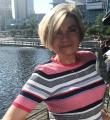Internationally acclaimed bestselling author Kate Mosse will be delivering a masterclass on writing historical fiction at Manchester Literature Festival
If you love to bury deep into a long read, the sort of novel you could use to prop open a fire door, a sweeping epic filled with tension, drama, real history and the fictional lives of people who lived through it, Kate Mosse is your woman. A writer of extraordinary stories, who brings her characters to vivid life in both their everyday worlds, in love and romance and in those moments of danger and despair you can barely breathe through, Kate Mosse may well be responsible for more than a few burned meals, ignored children and burned skin on hot beaches. This month, she will be holding a masterclass in the art of writing historical fiction, generously sharing what she’s learned with would-be authors and superfans, encouraging them to go for it and see what happens.
“I am not a teacher,” Kate says, “I am a writer who shares my thoughts about how I work, but I do that with the context of having been a published author, having founded the Women’s Prize for Fiction and the Women’s Prize for Non-Fiction and therefore having spent all of my adult life, essentially, around other writers, agents, publishers, bookseller and librarians, and I interview a lot of people, a lot of fellow writers. I very much talk about my practice and how I do it, but with the context of how other people do it too. It’s to give people some basic building blocks of advice. If you have a musical child, you don’t hand over violin and say, well off you go. You teach them how to hold the bow and hold the instrument, how to do their scales and how things fit together. You give them the tools in order to liberate the talent.”

After completing an English degree at Oxford University, unsure what to do next Kate took a temporary role as a receptionist at publishing house Hodder & Stoughton, in London. When a secretary moved on to a new role, Kate took her job and grew her career in the industry, eventually becoming an editorial director at Hutchinson, part of the Random House Group. So what triggered the move from being a reader of other people’s books to a writer of her own?
“I had had my first child, my daughter, and had gone back to work and was now expecting my second child. I was having lunch with a friend, a literary agent, and told him that when I was pregnant the first time the book I wanted to read wasn’t there, and now I was pregnant again and it’s still wasn’t there. He just said well why don’t you stop moaning and write it. He rang up a few days later and said he’d got a contract for me, to write the book I wanted to read about being pregnant. I wrote that (Becoming a Mother) and another non-fiction book (The House: Behind the Scenes at the Royal Opera House, Covent Garden). An editor saw that the way I write non-fiction, is what we call ‘narrative non-fiction', very much characterisation and storytelling, and asked if I’d like to write novels. I said I’d give it a go.
“I wrote two novels, but looking back I know I hadn’t discovered my voice, didn’t know what I wanted to do or say, so I think they weren’t very good and I have since kept them out of print. Then, in amongst all of this we had bought a tiny house in the medieval city of Carcassonne, in the south-west of France, and it was there I started to hear what I call the ‘whispering in the landscape’.”
It was this whispering that led Kate to her first massive bestseller – Labyrinth, the first book in the global bestselling trilogy, the Languedoc series. Labyrinth has sold millions of copies, and was the bestselling title in the UK in 2006. More novels followed, in addition to her trilogy, and in 2018 she published the first of a new series, The Burning Chambers, again set in Carcassonne, following the lives of generations of the Joubert family, from France to the Netherlands, to the Barbary Coast and finally, in the final and as yet incomplete novel, South Africa.

“For me the inspiration for a novel comes entirely from place,” Kate explains. “All of my stories are fundamentally set somewhere in place that speaks to me and where I’ve heard the whispering. There are places in the world I love visiting, but the voices are silent there. I knew always I wanted to write about the Canary Islands. I didn’t know when or how, but they’re a fundamentally important part of seafaring history, at the heart of the developing seafaring world in the 17th century, and most people just think about them as a holiday destination, but their history is fascinating, and this is where The Ghost Ship takes us.”
The Ghost Ship is the third in the series of four novels in the Joubert Family Chronicles, and has been described as ‘a thrilling novel of adventure and buccaneering, love and revenge, stolen fortunes and hidden secrets on the High Seas. Most of all, it is a tale of defiant women in a man's world.’
“I really believe books are finished by the readers. As a novelist you leave enough white space for the reader to bring themself to the book, so each reading is different depending on who is reading. I really like meeting readers and so really enjoy literary festivals; the questions people ask, how they react to the things you say – whether they laugh, or look upset because it’s a character they cared about.
“I love writing. I am very grateful to be a full-time writer, for this to be my actual job, and that people still buy my books and put them at number one, and all of these things – I don’t take any of that for granted.”
The How to Write Historical Fiction Masterclass with Kate Mosse takes place on October 7, 1pm-2.30pm, at The Edwardian, Manchester




























